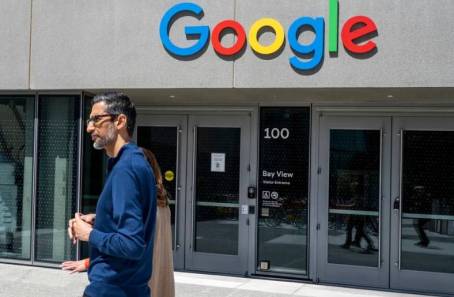The U.S. Justice Department has made a broad proposal to force Google to sell off parts of its business. This could be the first big corporate breakup in 40 years and change the shape of one of the most valuable tech companies in the world.
On Tuesday, the Department of Justice and a group of state attorneys general sent in a 32-page (PDF) document outlining possible ways to stop Google from having a monopoly on search and search ads.
The suggested framework for remedies was sent to U.S. District Judge Amit Mehta, who ruled against Google in a landmark antitrust case last August. It includes a variety of options, such as limits on behaviour and stricter structural measures.
There Are Four Places Where The DOJ Has Asked For Help:
- Search Distribution: Limit or get rid of pre-installations, revenue-sharing deals, and default search arrangements. Think about structure changes that could help Chrome, Play, and/or Android stay separate from Google. Google shouldn’t be able to control new search technologies, like features driven by AI. Set up user education programs to help people make smart search engine choices.
- Access to and use of data: Make it mandatory to share Google’s search directory, data, algorithms, and AI models. Make sure that search returns, features, and ad ranking signals are all clear. Stop Google from using data that can’t be shared because it could compromise privacy. Take steps to lower your competitors’ costs for collecting and storing data.
- Limit Google’s ability to use contracts to make it harder for competitors to get web content, and let publishing websites choose not to be used in AI training or in Google-owned AI products like AI summaries.
- Advertising: Cut back on or reorganise Google’s more advanced advertising goods, such as its AI-powered tools. Look into your choices for licensing Google’s ad feed separately from its search results. Make things clearer for advertisers by giving them specific information about auctions and how to make money.
The DoJ also talked about some of the reasoning behind its suggested solutions and why smaller sources of income, like AI-based tools, should also be included. Justices, it said, “should take into account alternative and future forms of monopoly maintenance.” They should also “free these markets from Google’s exclusionary conduct,” get rid of barriers to competition, and “deny Google the fruits of its statutory violations.”
In response, Google wrote on its blog late Tuesday that the Justice Department’s plan was “radical and broad,” and it warned of “negative unintended consequences for American innovation and America’s consumers.”
Berstein analysts warned clients on Wednesday in a note that the solution is “far-reaching” and “goes a mile wide and an inch deep.”
Also Read: Google’s New Plan for Ad Targeting Raises New Worries About Competition in the Uk
“Having to fight with one hand tied behind their back by regulators is the last thing Google needs right now in the bigger AI battle,” they wrote.
What do you say about this story? Visit Parhlo World For more.


